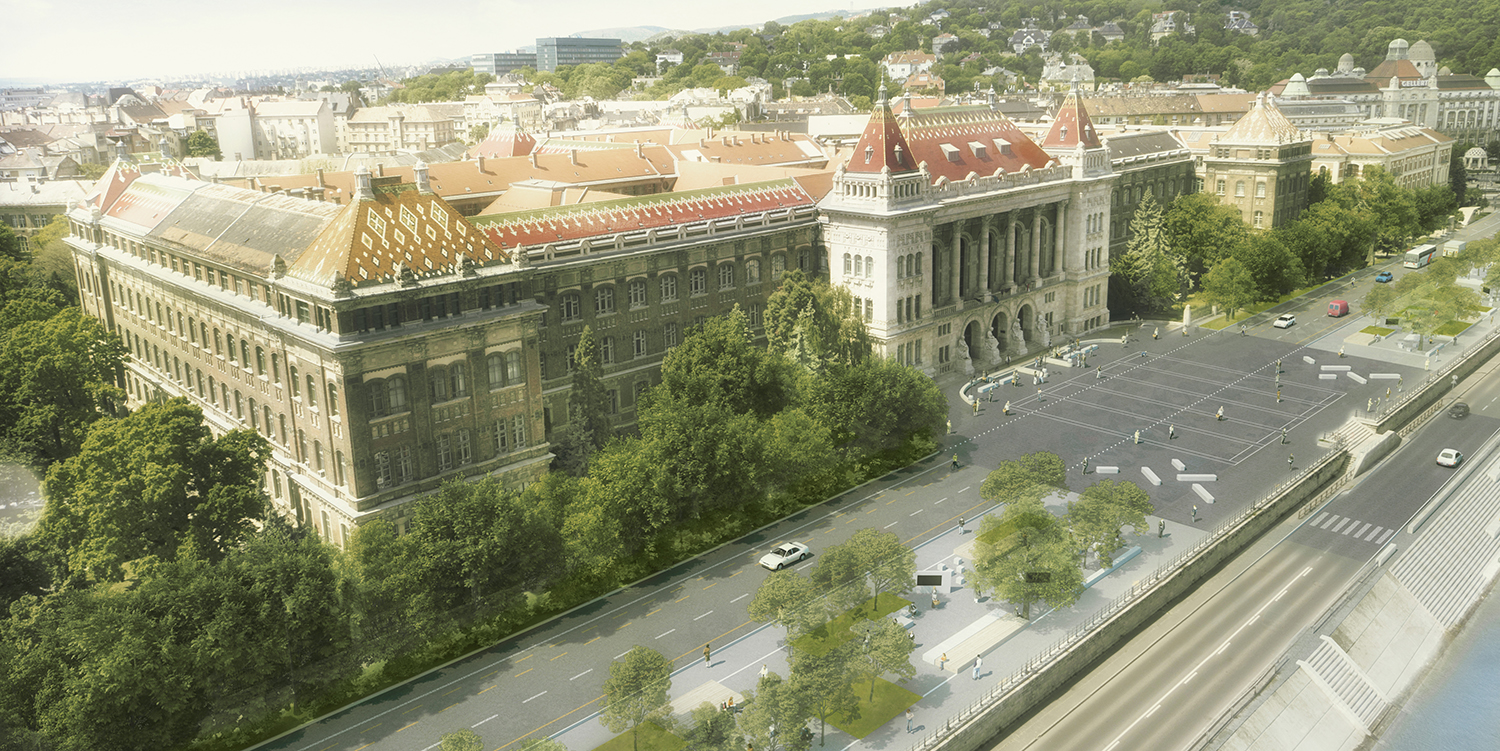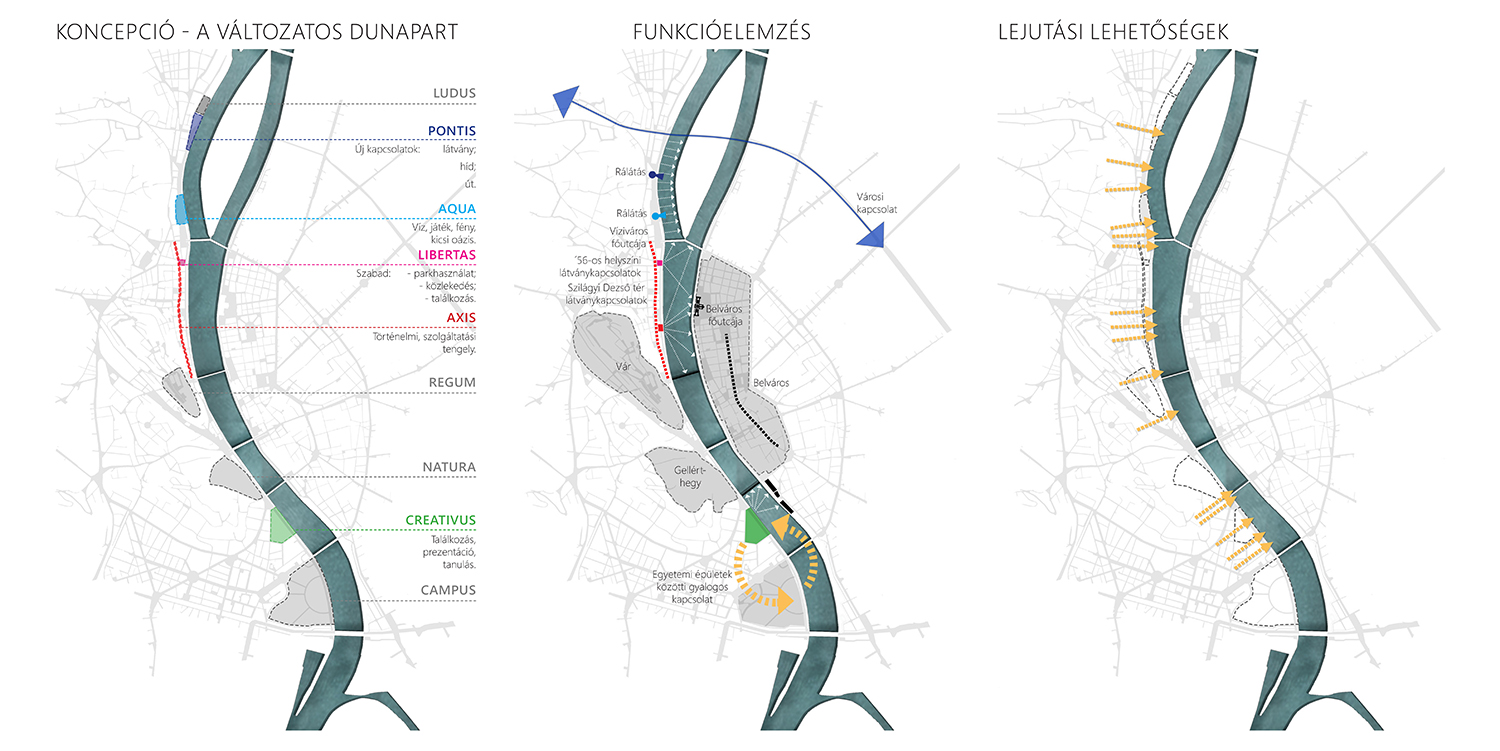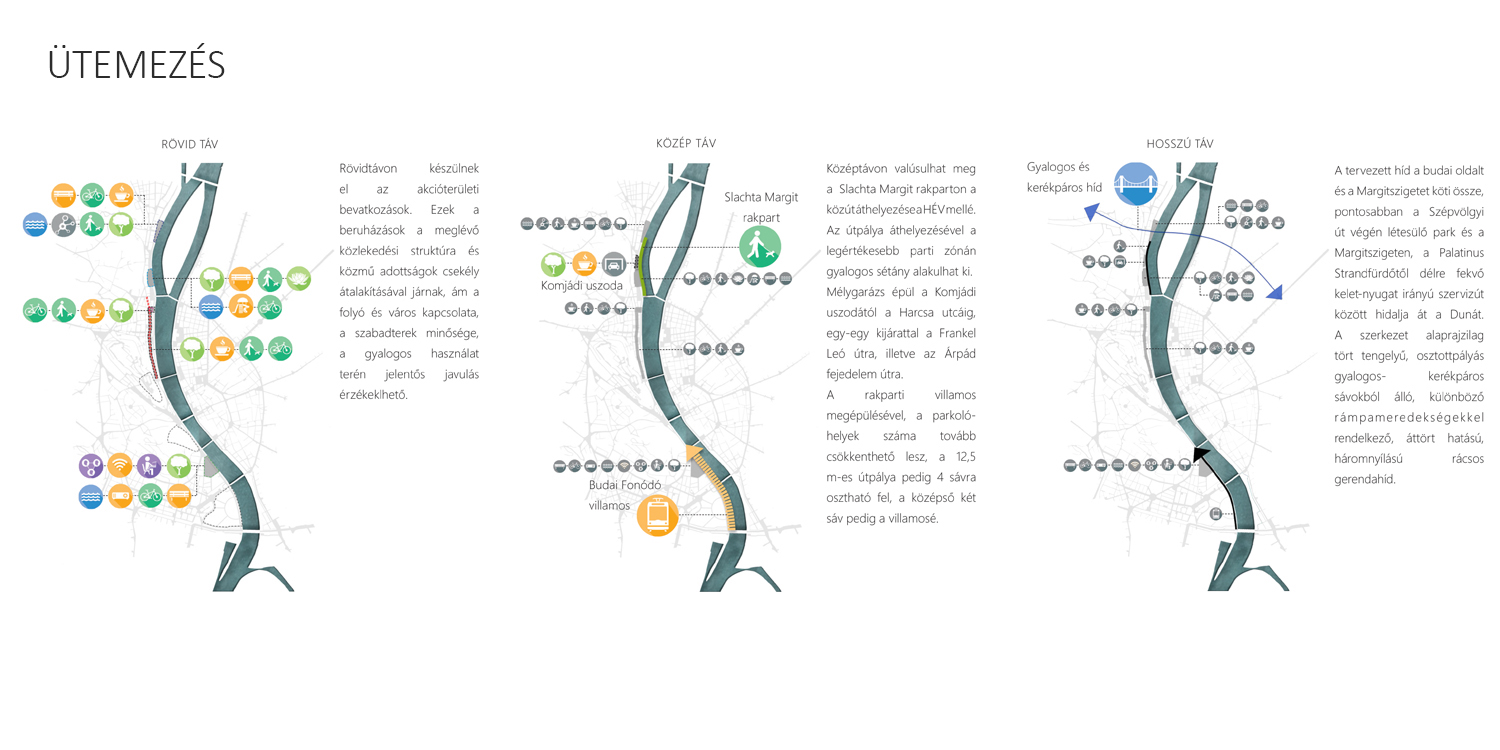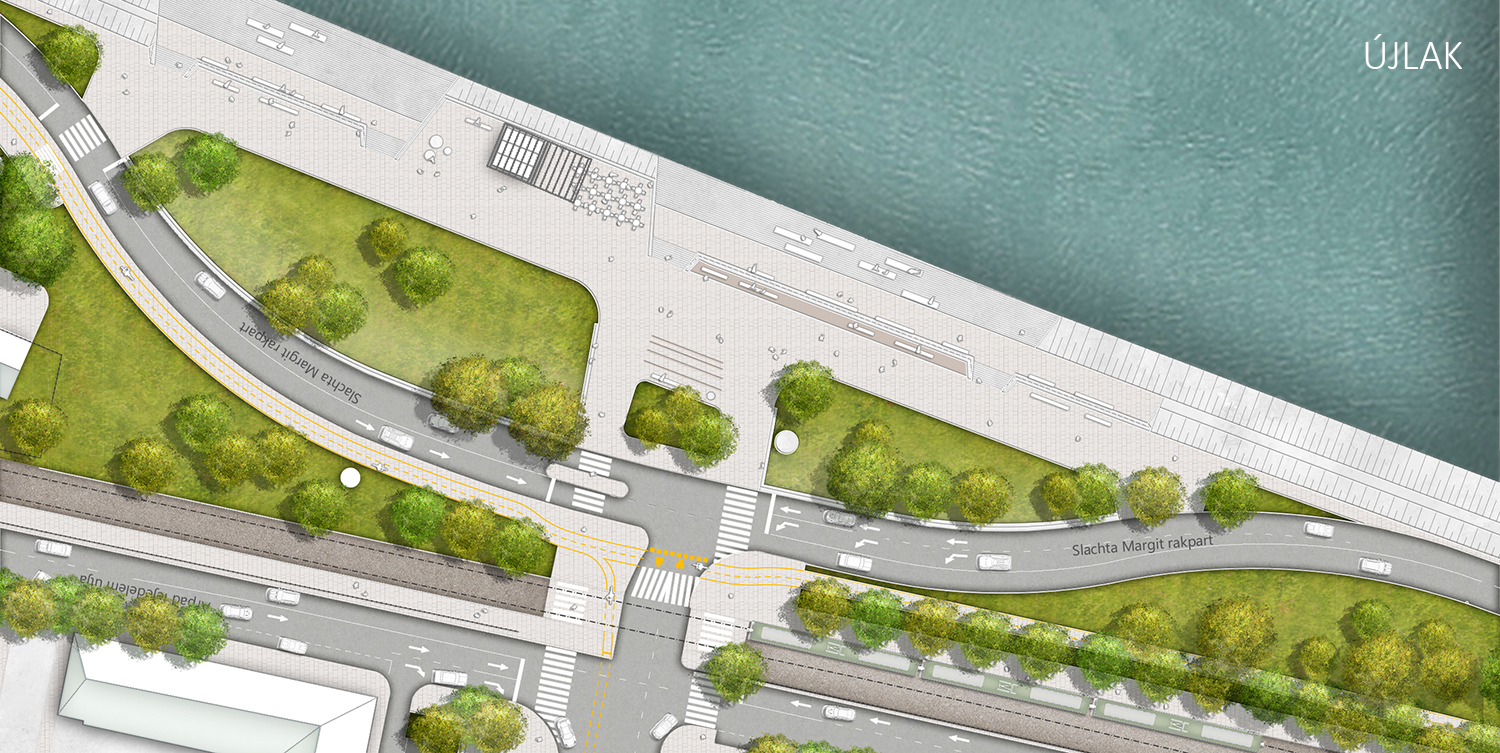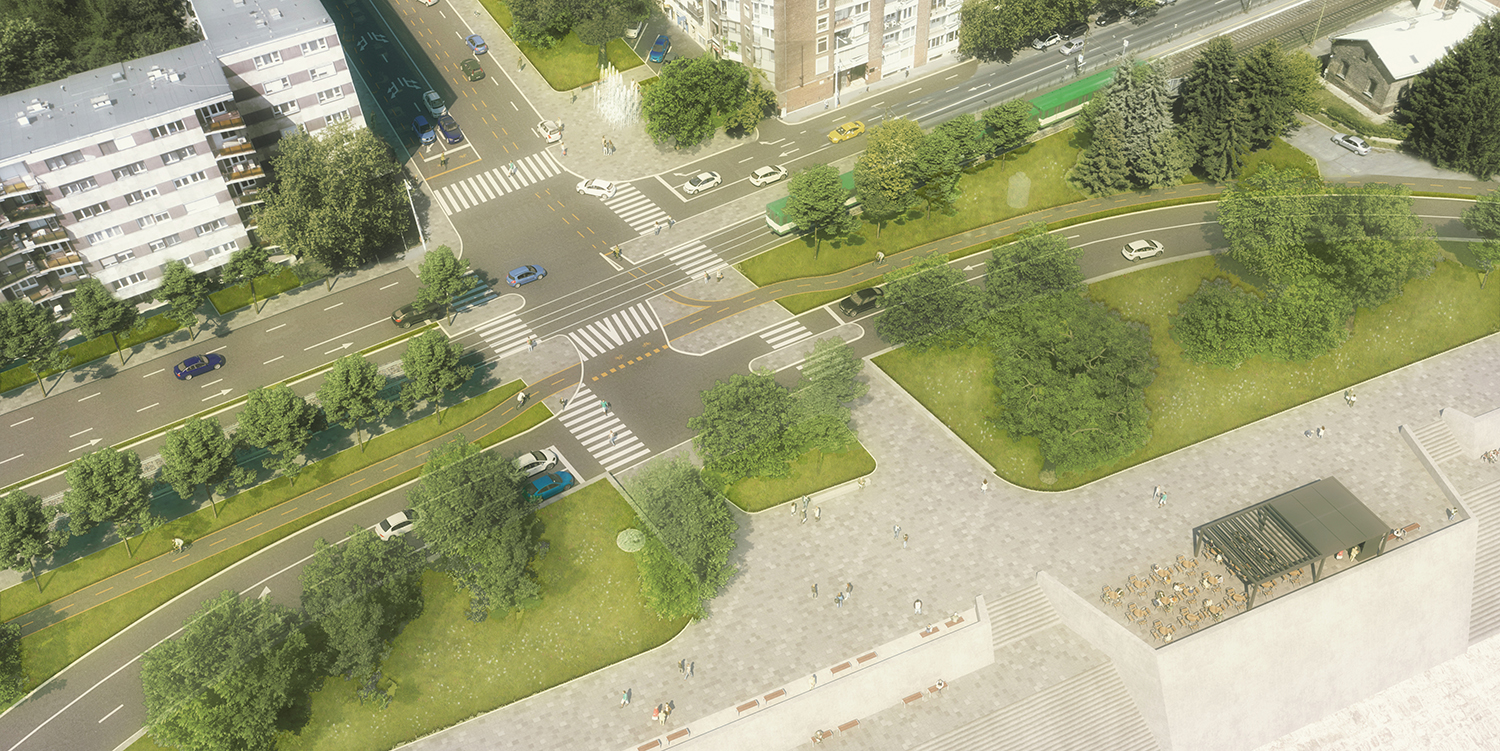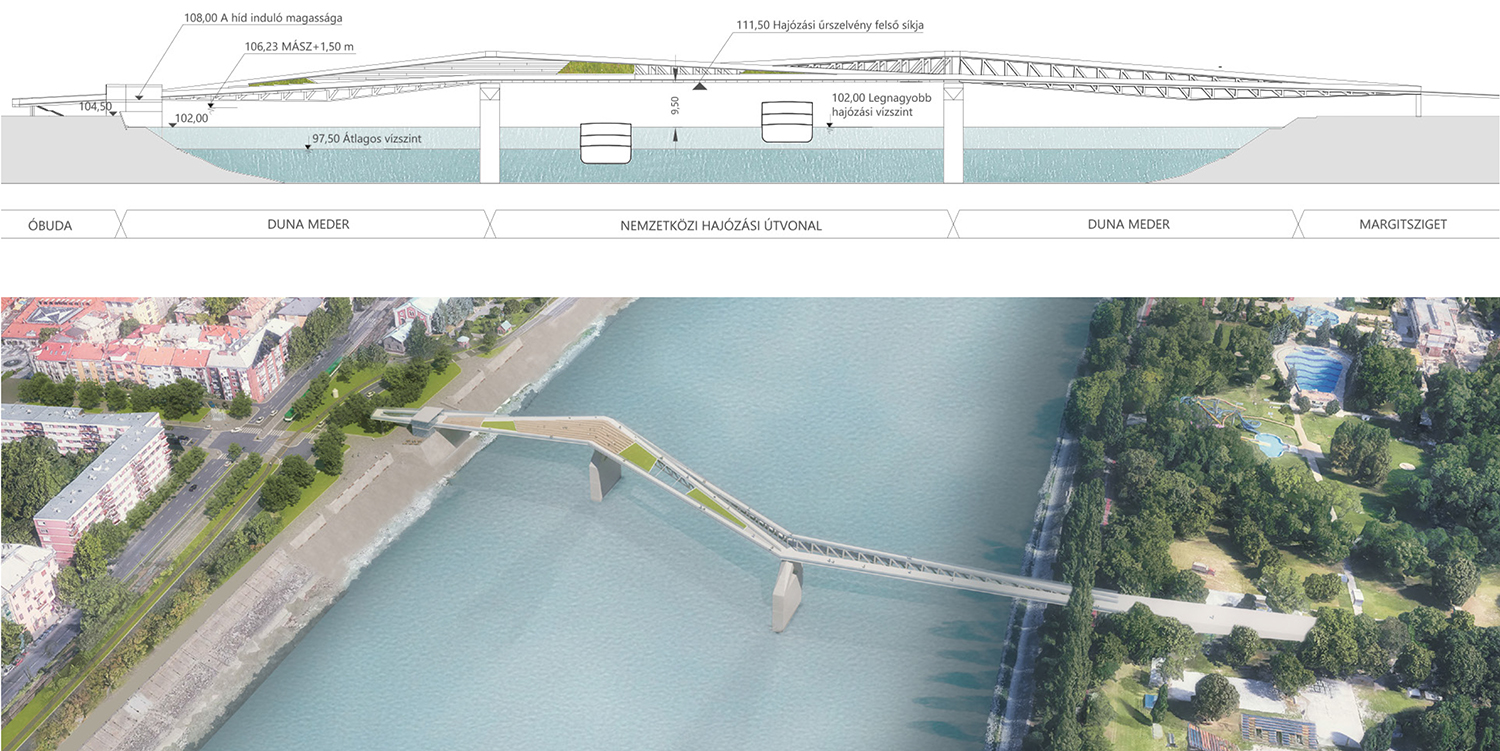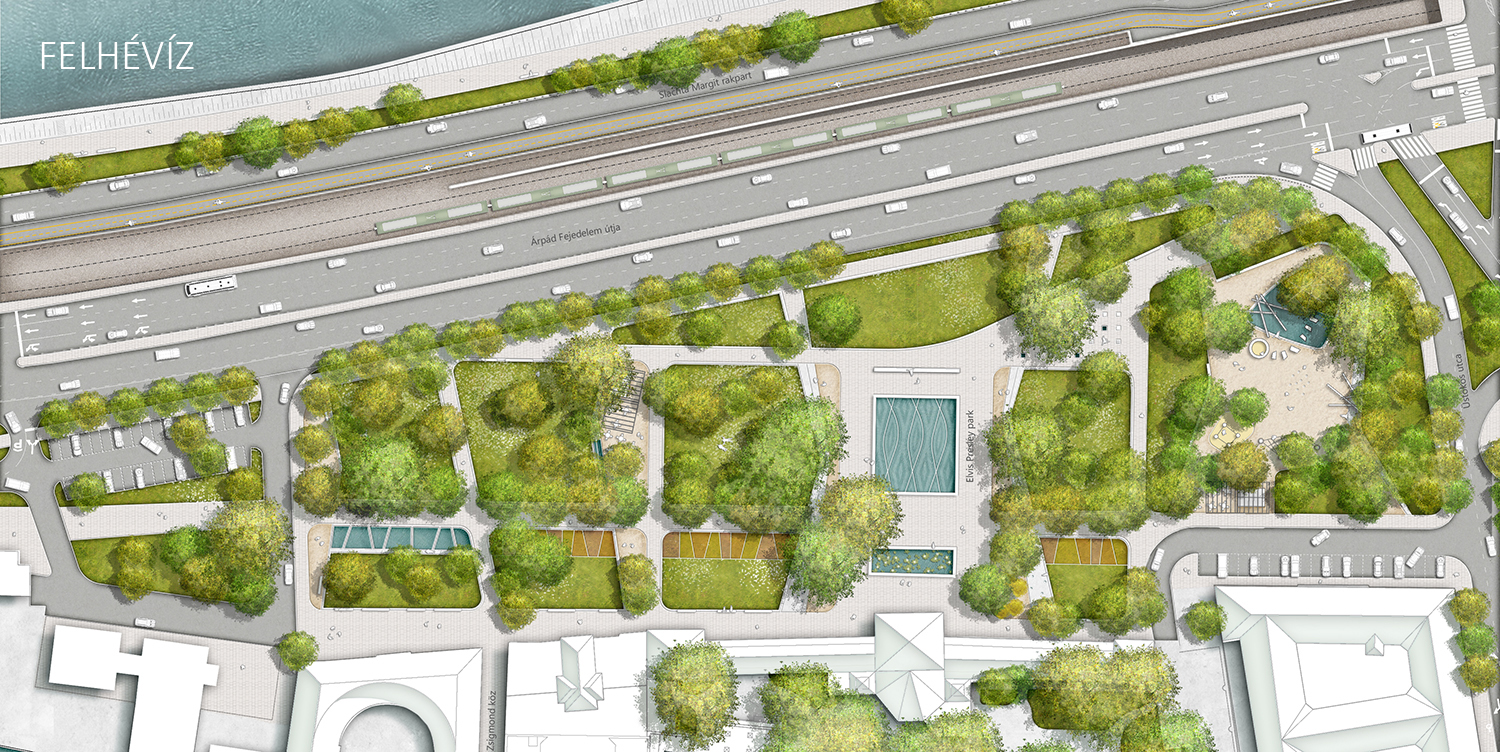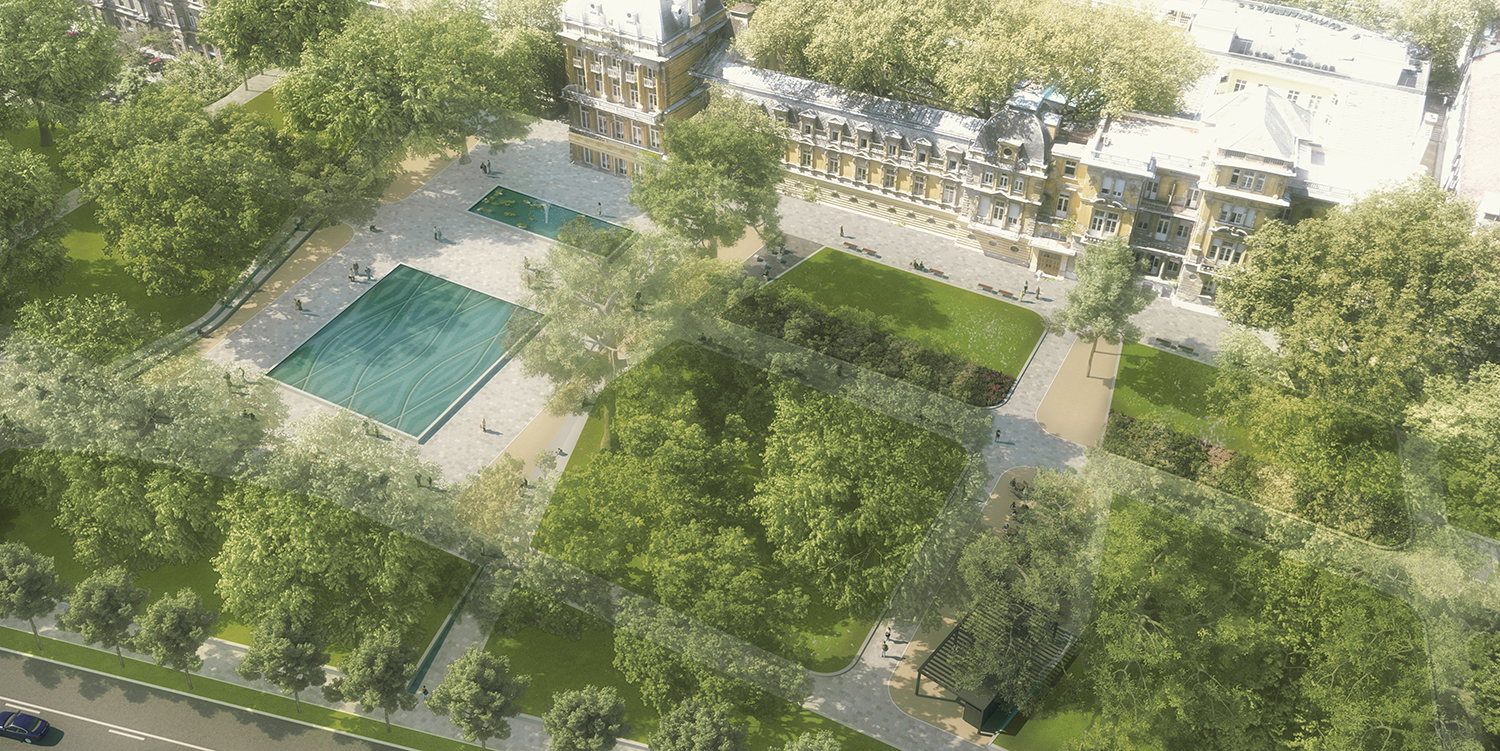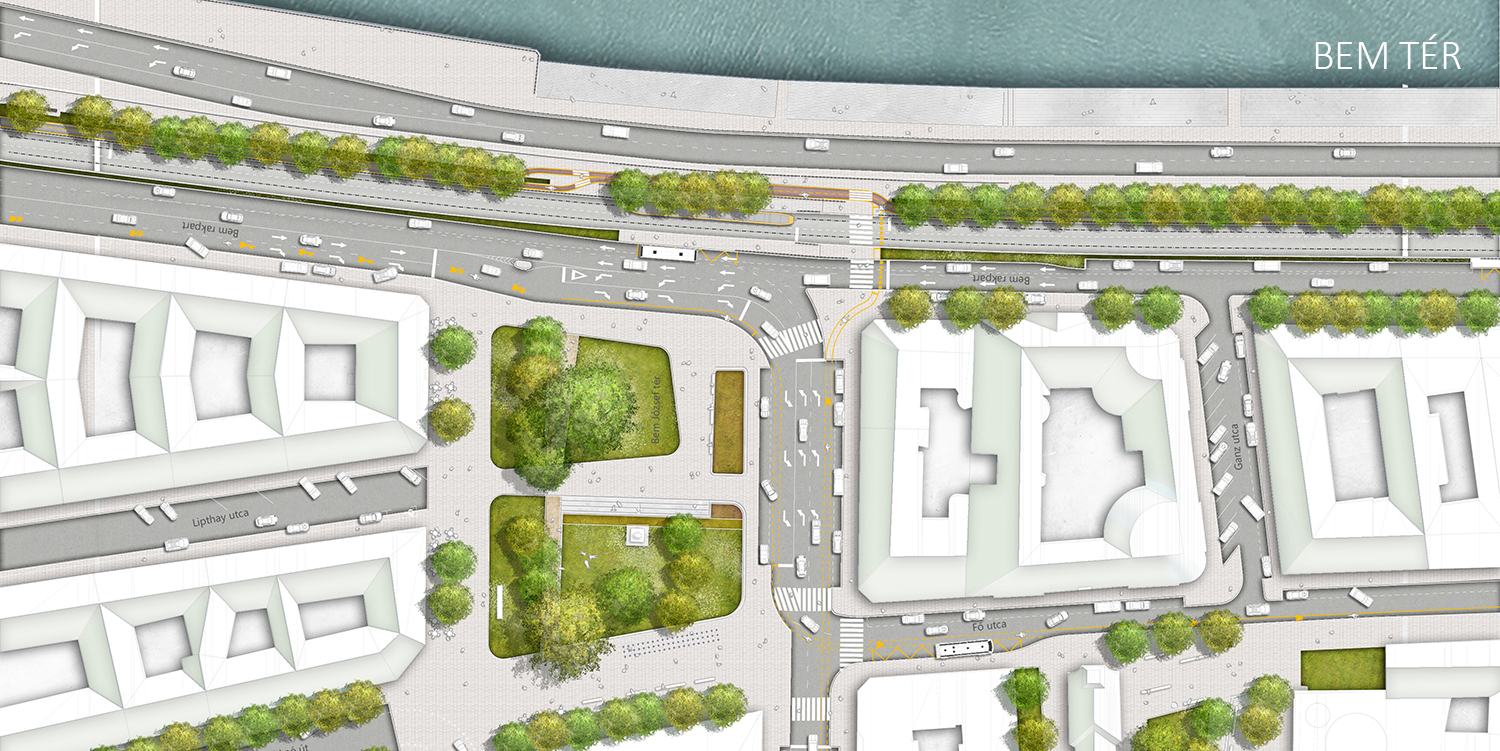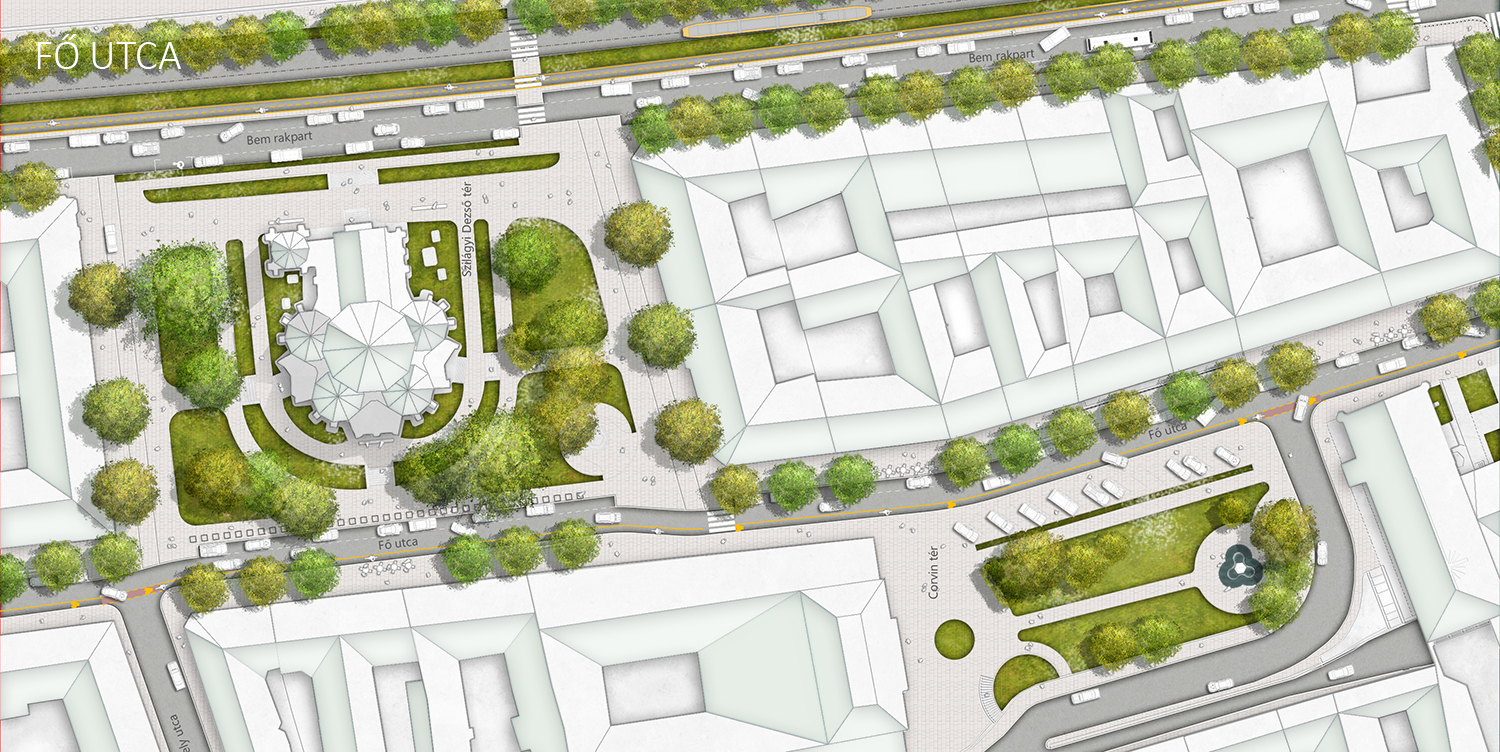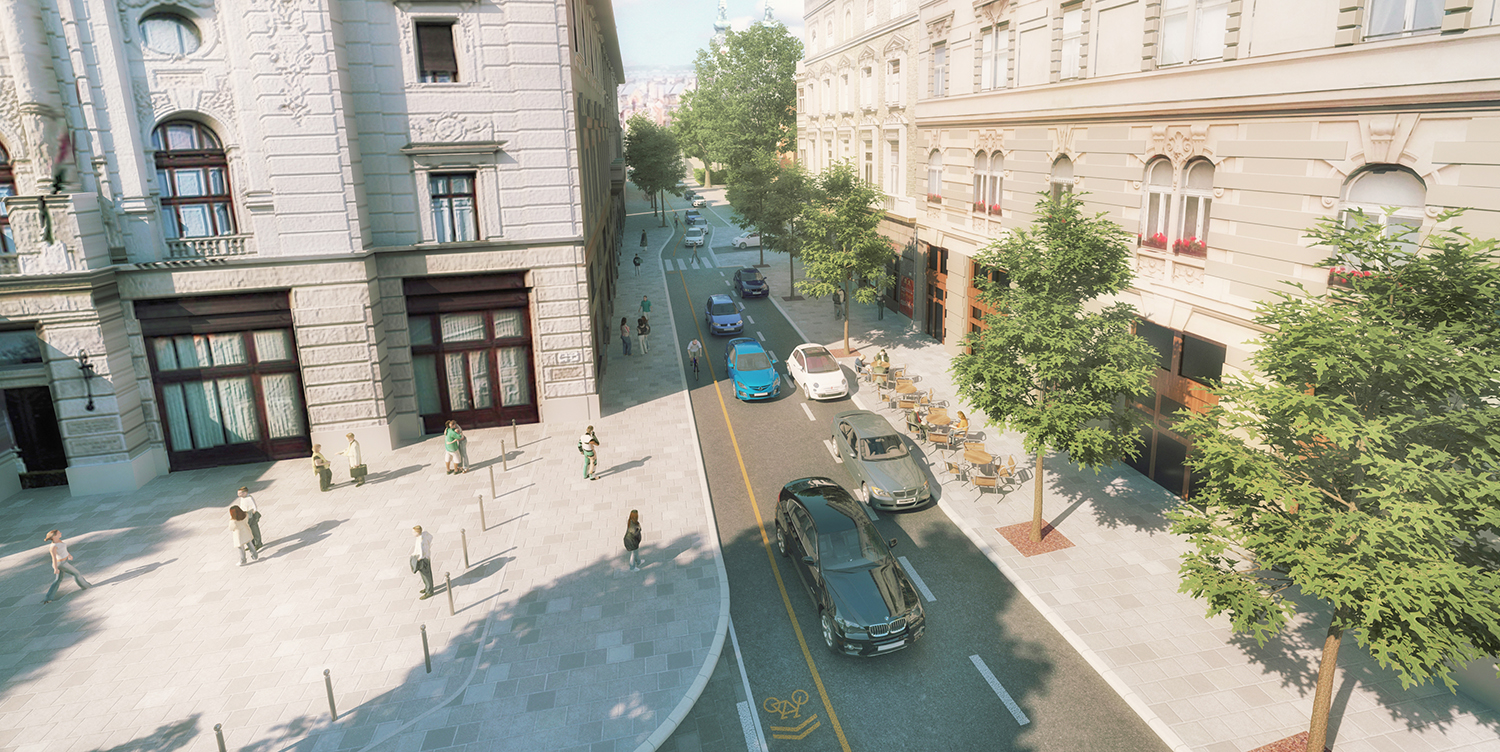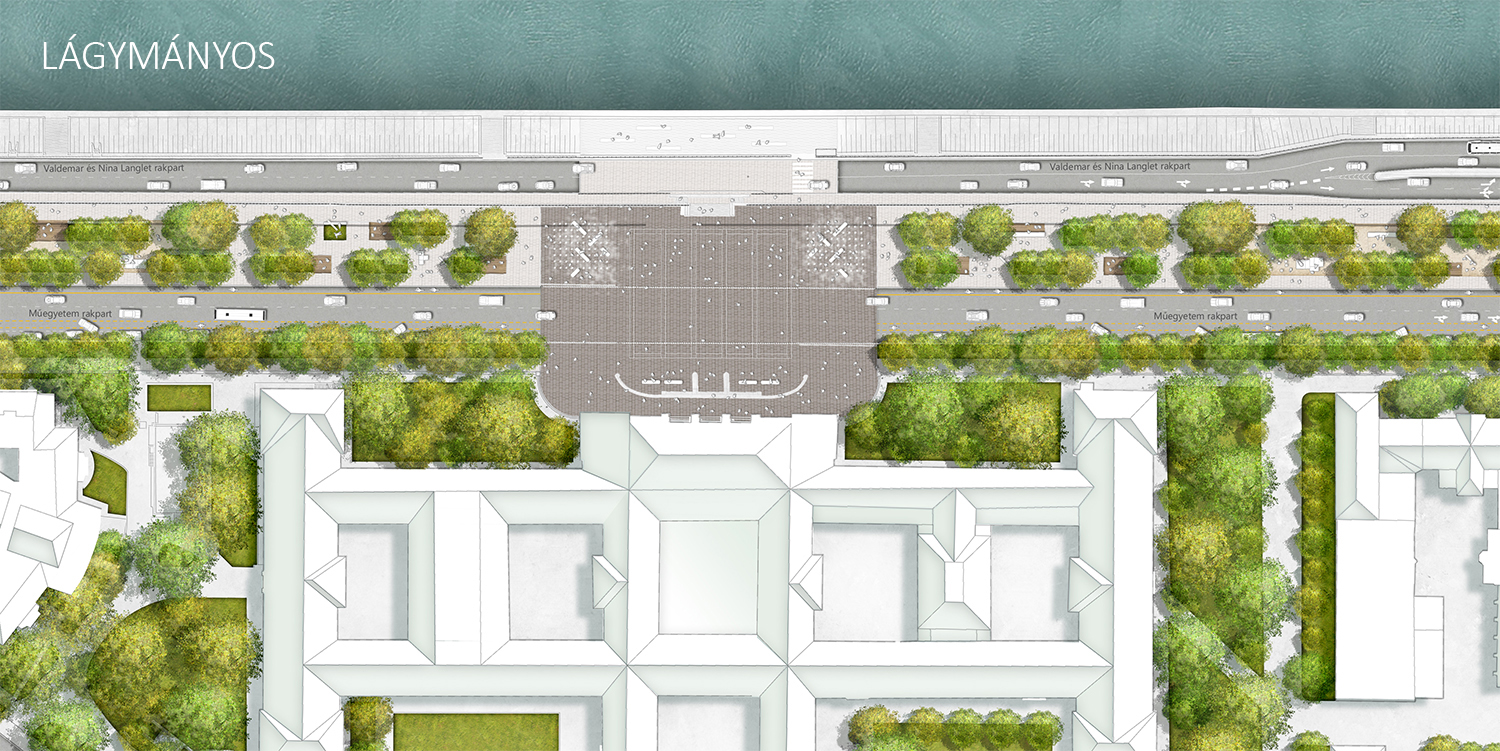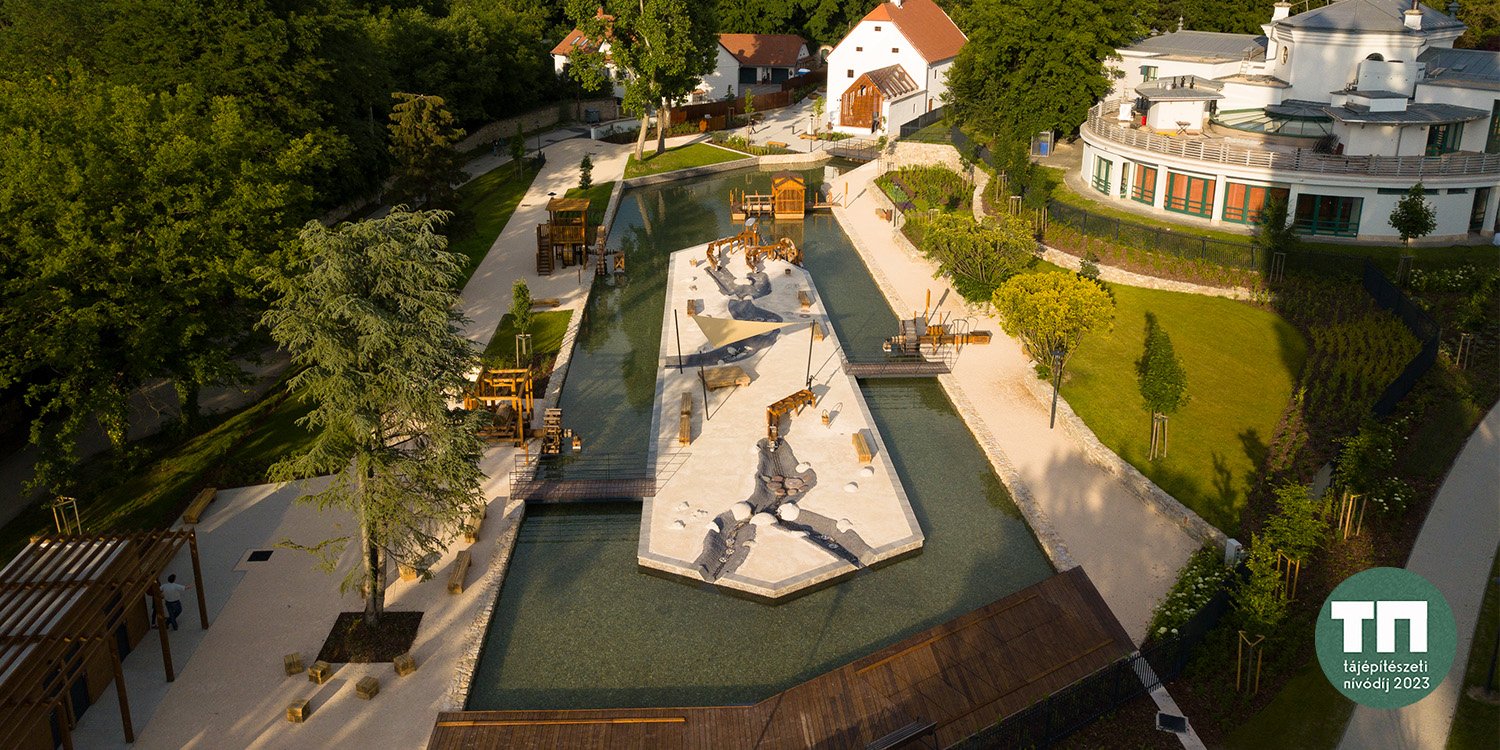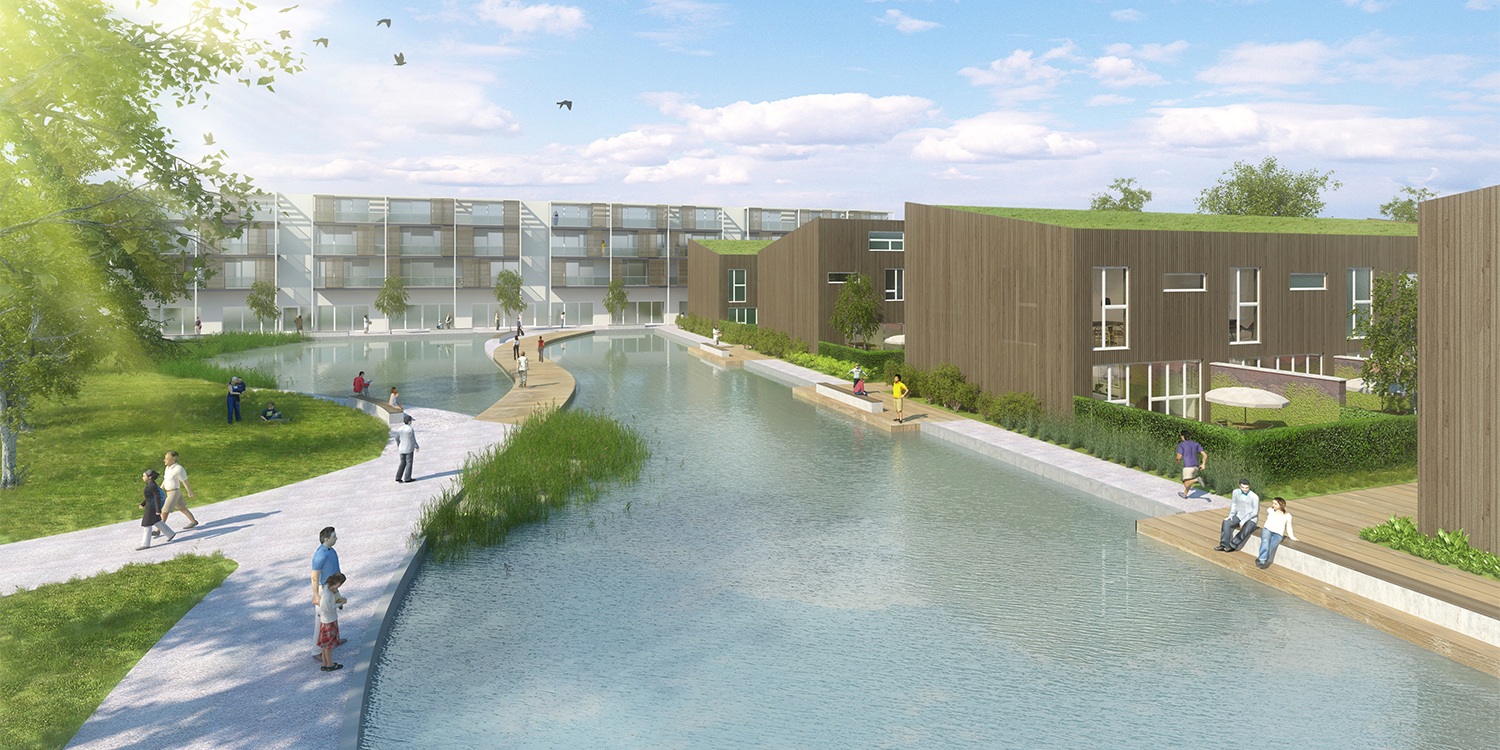The design area - a chain of spaces on the Buda side Danube waterfront – is an indispensable historical, cultural, urban and functional part of Budapest.
Besides the renewal of these separate entities, we aim to emphasize the relevance of the relationship between the four action areas (Újlak, Felhévíz, Bem tér, Fő Street and Lágymányos) as well. Our interventions focus on the spatial expansion of communitiy areas enriched with new features and functions for a more diverse experience on the waterfront. We found a cost-effective and sustainable way to add quality to these settings, with the consideration of the area’s heritage status. The small scale, interdependent interventions were efficiently sorted together, thus the project can be implemented in a feasible phasing.
Our design concept reflects today’s demands, but remains within the limits of feasibility. Our priorities were to meet World Heritage Site criteria and to create cost-effective interventions taking into account the constraints imposed by public utilities. The North-South traffic corridor role of Buda’s lower embankment is secured, whereas the upper embankment is vitalized by a rich network of public spaces that offer an attractive alternative for relaxation and recreation by the waterfront for both locals and tourists. The relationship between the water body and inner Buda is stronger, more transparent.
2017
Design competition,
- Ist prize
Client: Municipality of Budapest
Lead designer: Korzó Tervezési Stúdió
Road plan: Balázs Ercsényi (Főmterv)
Bridge design: Adrián Horváth, Dr. Attila Vígh (Főmterv)
Furniture design: Ákos Maurer-Klimes (Ivanka)
Visualization: János Kiss (VR Works)
Size: 240 000 m2

